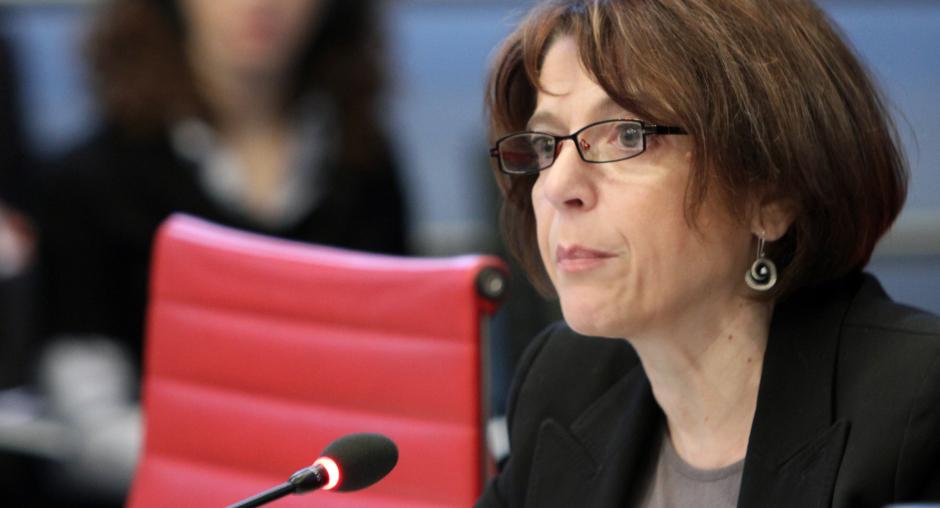OSCE Special Representative presents annual report, agenda for preventing trafficking for labour exploitation

Maria Grazia Giammarinaro, the OSCE Special Representative and Co-ordinator for Combating Trafficking in Human Beings, called on states to tackle the structural factors that increase the vulnerability of people to trafficking such as discrimination, violence, and lack of education and job opportunities, in her annual report to the Permanent Council on 15 December 2011.
“Addressing trafficking in human beings as a human rights violation implies not only a negative obligation of any state to abstain from direct violations of human rights, but also a positive obligation to put in place protective measures for potential, presumed and actual victims. Prevention also means long-term measures aimed at the economic and legal empowerment of people at risk,” said Giammarinaro.
She presented An Agenda for Prevention: Trafficking for Labour Exploitation - three expert papers that build on the outcomes of the Alliance against Trafficking in Persons Conference on Decent Work and Social Justice.
Giammarinaro also highlighted the importance of the Declaration on Combating all Forms of Human Trafficking agreed by the OSCE foreign ministers at the recent Ministerial Conference in Vilnius.
“The Vilnius declaration is an important achievement for the OSCE as a whole, as it reconfirms the political commitment to fight trafficking as an integral part of OSCE efforts towards common and comprehensive security, which includes full respect of human rights,” she said.
She told the ambassadors of OSCE participating States the declaration could underpin efforts to “achieve more effective results in the fight against all forms of trafficking, including the least addressed, such as trafficking for the removal of organs, for forced begging and forced criminality, while continuing to develop innovative approaches to the prevention of and fight against trafficking for sexual exploitation, trafficking for labour exploitation including domestic servitude, and child trafficking".
The annual report for 2011 highlights work with the participating States, OSCE structures, Institutions and field operations, as well as with international and non-governmental organizations to make the anti-trafficking framework more effective.
